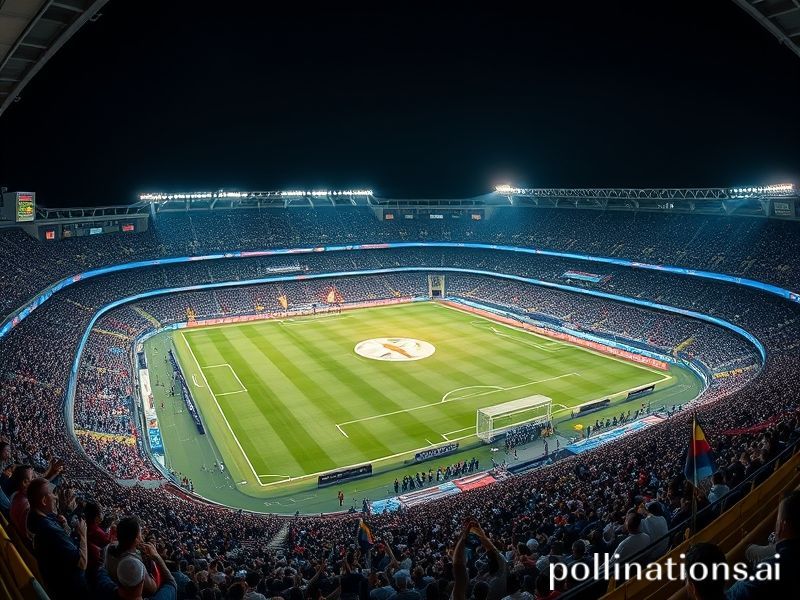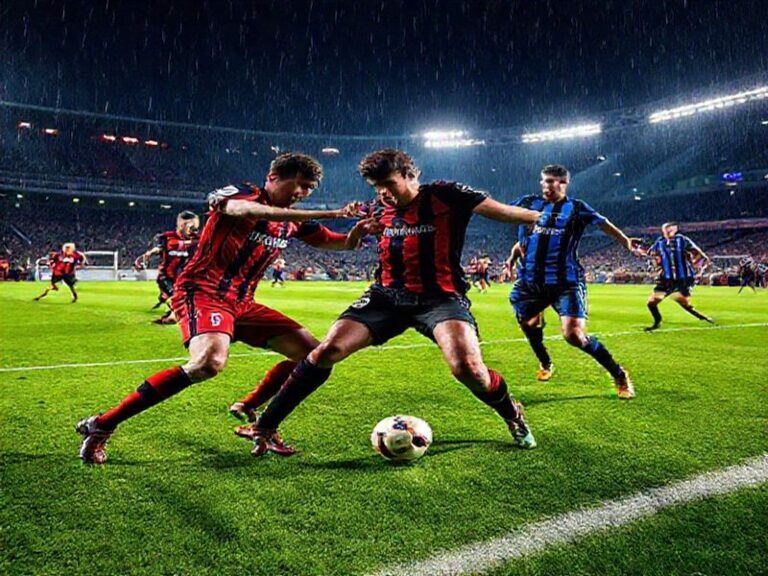Pachuca vs San Luis: The Global Yawn, the Local Roar, and the €750k Ankle
PACHUCA VS SAN LUIS: A QUIET CLASH IN THE GALAXY’S BACK ALLEY
By Our Man on the Barricades, Somewhere Between Apathy and Awe
The Estadio Hidalgo, Tuesday night, lights humming like a dying fluorescent bulb. On paper it’s merely Matchday 14 of Mexico’s Liga MX: Pachuca, the miners-turned-money-ball prophets, versus Atlético de San Luis, a club whose Wikipedia page still carries a disclaimer that it may not be notable enough for some editors. Yet the planet keeps spinning, algorithms keep trading crypto, and two small cities in central Mexico have conspired to remind the rest of us that even in 2024, tribal loyalties still outperform most central-bank stimulus packages.
Global markets, of course, yawned. Tokyo’s Nikkei barely twitched; Frankfurt’s DAX issued a polite cough. Somewhere in Davos, a panel on “Reimagining Stakeholder Football Governance” droned on while delegates checked the scoreline beneath the table. But down on the pitch, the match delivered the sort of low-stakes drama that keeps existential dread at bay for 90 minutes plus stoppage time—stoppage generously padded by VAR, the surveillance-state love-child we never voted for.
Pachuca arrived armed with the latest export-ready wonderkids: a Paraguayan No. 10 who already has “2025 Brighton target” written in his haircut, and a Canadian winger whose surname is half Scandinavian, half tax haven. San Luis countered with a roster assembled from the bargain bin of South American academies and one solitary Montenegrin defender whose passport might actually be a library card. The betting houses installed the home side at 1.48, a line so stingy it could only have been drafted by a Swiss actuary on ketamine.
Still, football has a delightful habit of humbling the smug. In the 17th minute, San Luis’s Uruguayan striker—on loan from a club that is itself on loan from solvency—latched onto a clearance and poked the ball past a goalkeeper whose gloves cost more than the entire away bench. The away end erupted; the home crowd practiced that peculiar Mexican chant which, when translated loosely, questions the marital fidelity of the referee’s mother. FIFA fines will surely follow, thereby feeding the circular economy of outrage and punishment that keeps the sport’s bureaucracy in artisanal coffee.
At halftime, pundits on three continents attempted to frame the fixture as a referendum on “north-south talent pipelines,” “glocal sporting identities,” and other phrases invented to justify graduate tuition. Meanwhile, the stadium Wi-Fi collapsed under the weight of 12,000 simultaneous uploads of half-eaten elote. Humanity’s greatest miracle, the internet, reduced to a conduit for soggy corn.
The second half saw Pachuca equalize via a penalty so soft it could have been marketed as a luxury pillow. Twitter (still refusing to call itself X in civilized company) branded it “modern football in a nutshell”: VAR zooming down to the molecular level, discovering a fibre of sock brushed by a toe-nail, and justice—or at least narrative convenience—prevailing. The commentariat howled, conveniently forgetting that last week they were demanding more technology, not less. Consistency, like clean air and decent public transport, remains aspirational.
By the 87th minute, both teams had settled for the draw, a result that satisfied the accountants if no one else. Each side gained a point, lost two knees, and uploaded one carefully curated Instagram apology. The global implications? Negligible, unless you count the Paraguayan kid’s price tag ticking up another €750k, enough to buy a midsize condo in Asunción or a parking spot in Toronto.
Yet zoom out. In a week when another continent teetered toward war and the oceans politely asked for their coastline back, 22 men in fluorescent boots still managed to make strangers hug, swear, and spill beer on one another. It’s not redemption; it’s barely distraction. But it is evidence that Homo sapiens, for all its innovative methods of self-harm, can still be pacified by the sight of a sphere rolling improbably into a rectangle. Bread and circuses? More like tortillas and tarjetas rojas. Same circus, new clowns.
And so the universe expands, indifferent. Somewhere a star collapses, somewhere a hedge-fund manager buys a yacht named “VAR Decision.” And somewhere in Hidalgo, a kid who can’t yet shave files away the memory of tonight’s roar, ready to export it—like copper, like talent—to whatever corner of the globe still believes the next match will finally explain everything.







